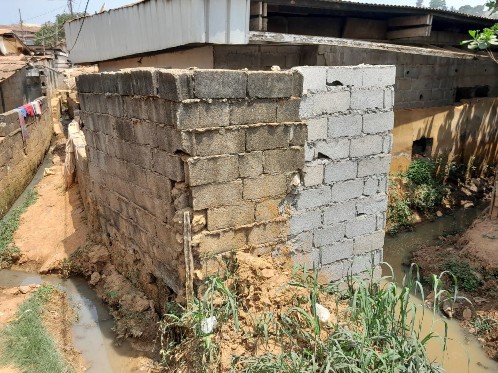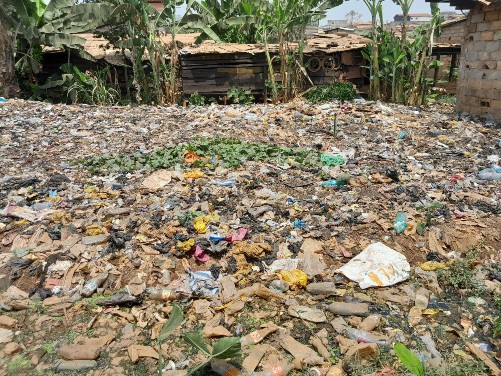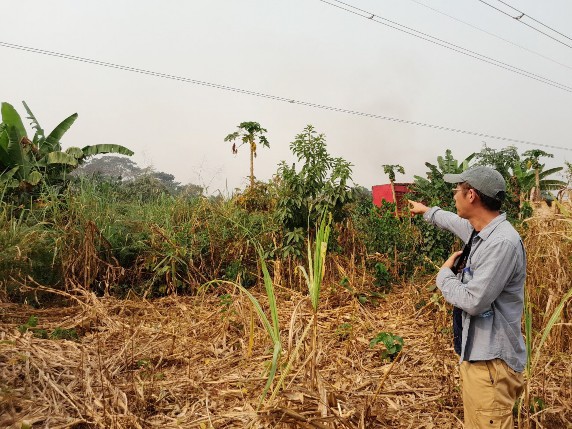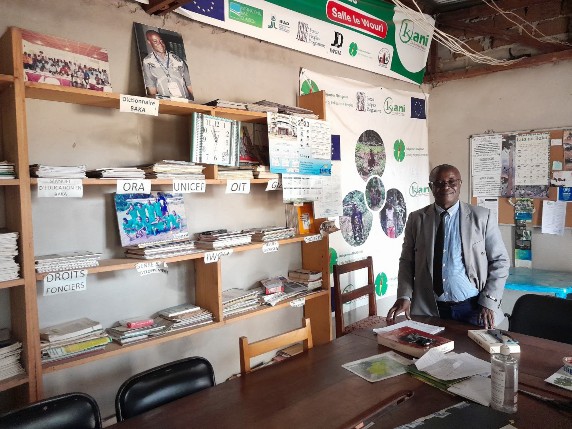Report on the Dispatch to Cameroon: Grounding of Scientific Research (S)
Akira Takada
Professor
Graduate School of Asian and African Area Studies
Kyoto University

From February 11 to 23, 2022, I visited the University of Yaounde I in Yaounde, the capital of Cameroon, and settlements around Bertoua, the capital of the Eastern Province, to hold research discussions and collect information on this project. This was the second time for the author to conduct research in Central Africa, having previously conducted most of his research in Southern Africa.
In Yaounde, I first visited the Anthropology Department of the University of Yaounde I, which will be the counterpart of this research project, to introduce the concept of this research project with Associate Professor Antoine Socpa and his colleagues, exchange views on the planning and management of the project, and gather information on the contact zones of hunter-gatherers and agro-pastoralists in Cameroon, especially on early childhood education and their support groups. Professor Socpa had been a visiting professor at the Graduate School of Asian and African Area Studies, Kyoto University and has a longstanding research relationship with the author. We are both aware of each other’s academic interests and past research experiences, and are ideal counterparts to promote this project in the future.
I then visited the Embassy of Japan in Cameroon to introduce the project and exchange information on the current medical situation in Cameroon, the Marburg disease outbreak in the Republic of Equatorial Guinea, which borders Cameroon, and typhoid fever and cholera, which are common in Cameroon. I also exchanged information with the Ambassador H. E. M. Takaoka regarding the history of research in Cameroon conducted by Kyoto University and other Japanese research institutions, as well as on the anthropological research interests of the presenters.
I also went to an underdeveloped area in Yaounde City to inspect the area under the guidance of TamTam Mobile, an NGO that promotes activities in the area (Photos 1 and 2). The tour was particularly impressive in terms of the precarious employment and housing conditions faced by people visiting cities from rural areas, as well as in residential areas where sewage and garbage problems are becoming more serious due to inadequate drainage facilities. I confirmed that these social issues related to rural-urban migration and environmental issues related to sanitation are important perspectives for action research in this project.

Afterwards, we visited TamTam Mobile’s office and held the first local workshop (co-hosted with International Joint Research Enhancement (B) (PI: Taro Yamauchi)). In this local workshop, we listened to a presentation on the activities that the organization has been promoting and the issues they would like to focus on in the future, and exchanged opinions on how we would be able to build a cooperative relationship with the organization regarding the planning and operation of this project and its future activities.
In addition, we visited the JICA Cameroon Office, where we were briefed on JICA’s activities in Cameroon and exchanged opinions on the concept of this project. The JICA Cameroon office is currently promoting projects that are closely related to this project, which focuses on the process of children’s acquisition of ecological knowledge and its change with modernization, such as SATREPS “Co-creation of Innovative Forest Resources Management Combining Ecological Methods and Indigenous Knowledge” and JOCV activities related to education and welfare practices, and we obtained extremely useful information on future research cooperation.
We also visited a village on the road from Yaounde to Bertoua, the capital of the Eastern Province, where we were received by officials of Mutcare, an NGO working in the area. In this village, the project team members dug holes in the ground to build latrines and planted useful fruit and vegetable trees in the vicinity to utilize the nutrients and nutrients from the latrines (Photo 3). I inspected these “fruit toilets”.


In Bertoua, I visited the offices of Mutcare and Okani, another NGO that operates in the Eastern Province, to hear a summary of their activities to date and to exchange views on future activity plans (Photo 4).
There are many Baka (a so-called pygmy hunter-gatherer group) villages in the Eastern Province, and Mutcare and Okani have extensive experience in activities related to livelihood and education in these villages. The Mutcare and Okani offices in Bertoua are well-equipped and thus suitable as venues for the local workshops that are being planned for this project.
Although the visit was short, it provided a solid foundation for the Scientific Research (S) “Ecological future making of childrearing in contact zones between hunter-gatherers and agro-pastoralists in Africa”. In particular, it was a great achievement that I could formulate a concrete image of future research collaboration in the Eastern Province with NGOs such as Mutcare and Okani.
